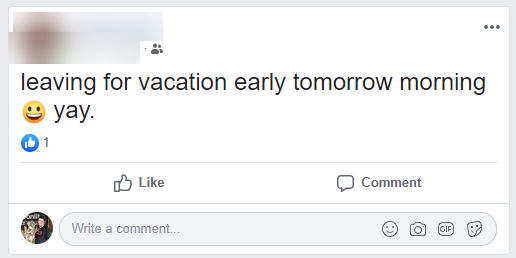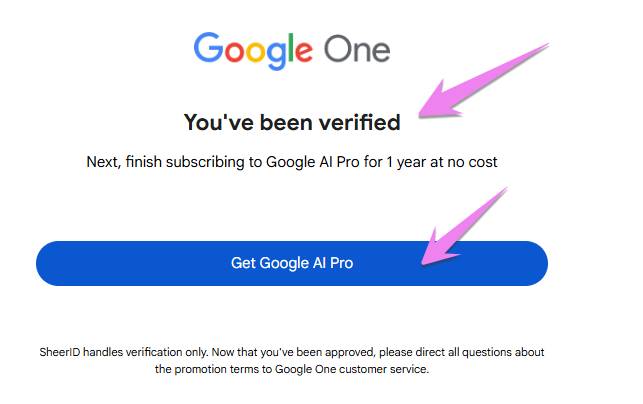While social media is great for keeping an eye on family and friends, it’s easy to share too much of your privacy on platforms like Facebook and Twitter. A lot of people worry about what these social networks will do with your data, but in reality, you yourself provide more information than you think.
| Join the channel Telegram of the AnonyViet 👉 Link 👈 |
In this article, I will tell you some things you should never share on social networking sites. Sharing these can be harmful to your privacy and safety.
If you want to backup all your Facebook data to Google for storage, you can read this post.
1. Travel plan

Think twice before bragging about your upcoming great vacation or posting photos while you’re away for the weekend. But other users can see this information and break into your house to steal.
If someone knows where you live and has malicious intentions, they’ll have plenty of time to break into your home while you’re on vacation.
To be on the safer side, don’t share any information or photos about your trip until after you return. Although it wouldn’t be fun to do so, in exchange for safety it was totally worth it.
2. Location data
In addition to your smartphone tracking your GPS coordinates, your browser can also track your location based on your IP address or logged in account. This is called geolocation and it is commonly used on social media to tag posts with your current location.
Before you post on any social network, check if the site automatically adds your location data and disable it before posting. There’s no reason to share your location with people who can see the post.
Did you know that most photos contain metadata showing the exact location where the photo was taken? So the photos you post on social media can also invade your privacy.
You also should never share your home address or phone number online, even when you are trading or buying something.
3. Personally Identifiable Information
Sites like Facebook are filled with valuable data for people who use social engineering steal your identity on social media. Therefore, you should avoid sharing information used to verify your identity, such as your full date of birth. Never share photos of your driver’s license, passport or credit card that contain personal information you don’t want to be made public.
It’s also important to avoid “funny questions” that frequently pop up on social media. They ask you to answer questions like where did you go to school, what was the name of your first pet, etc.
These types of questions are often used as security questions to protect your online accounts. As a result, making these answers public could allow hackers to break into your account, so avoid them.
4. Don’t complain or speak ill of anyone
Social media is not a place to vent your personal grievances. If you want to complain about your boss, co-worker, or loved one, social media is a terrible place to do it. There is a chance that someone will see it and tell him or her, leading to the worsening of the situation.
A lot of people use their social media accounts as a place to complain, for a number of reasons. Instead of posting them on social networks, it is much more fun to find close friends and chat.
5. Bad evidence
Don’t get too drunk to take pictures on Facebook while driving or taking selfies on the highway. That bad evidence will expose you.
You may not know it, but those things will worsen your image and if you are unlucky, you may be invited to the ward again.
6. Buy expensive things
Many people love to share pictures of their new toys on social networks. Whether you’ve just got a new phone, laptop, car, TV, jewelry, or anything else, you shouldn’t go public with your purchases on social media.
Social media increases our insecurities and feelings of failure. When you post the highlights of your life, it can inadvertently make others jealous and resentful.
The second reason is more practical. Showing off a new piece of clothing can even make you friends for washing new clothes. Some other people with bad intentions will take advantage of that to steal your house. And don’t be foolish to brag about winning the lottery on Facebook. There is no fool like this one.
7. Personal advice

We’ve all seen people asking for home remedies or legal advice on social media. No matter how sure you are about yourself, it is in everyone’s best interest (including yours) not to give medical or legal advice to people over social media. This is true even if you are a doctor or a lawyer.
The bottom line is that you can’t know all the information. If someone is sick or struggling, they should seek professional help. This also applies to advice on exercise, weight loss, diet, finances, relationships and other sensitive topics.
It’s best to keep quiet about all of this because if you give advice that ends up harming someone, they could sue you.
8. Scam giveaways and contests

Social media is the primary means by which companies organize giveaways and contests, mainly because it is so easy for people to “Share” and not have to think twice about it. While there are plenty of legitimate giveaways on Facebook and the like, you should think twice before sharing them.
If you’re constantly sharing giveaways, contests, and game invites on Facebook, you’re probably annoying your friends. More importantly, some contests are actually scams in disguise. You could unknowingly spread malware or trick people into providing sensitive data.
To be on the safe side, you should be wary of all posts that encourage sharing and ask for personal information.
9. Insider Information
Accidentally posting personal information publicly is an easy mistake to make. However, you should be careful about revealing inside information on social media. If you know special insider information, don’t share it anywhere, especially online.
Talking about someone getting fired next week, your company’s strategy for the new year, and other insider information can land you in big trouble.
10. Anything you don’t want to make public
Here’s a little note for anything not mentioned above. If there’s one rule you should follow on social media, it’s this: never post anything that you don’t want the world to see.
On the internet, once something has been published, it is almost impossible to remove it completely. Even if you set the mode to “Friends”, there is no way to know who has actually viewed your posts and photos, saved them, or shared them with others.
So if you post something today and regret it in two years, you can remove it from your account, but never completely remove it from the internet. A general rule of thumb is to never post or share anything you don’t want on social media.












